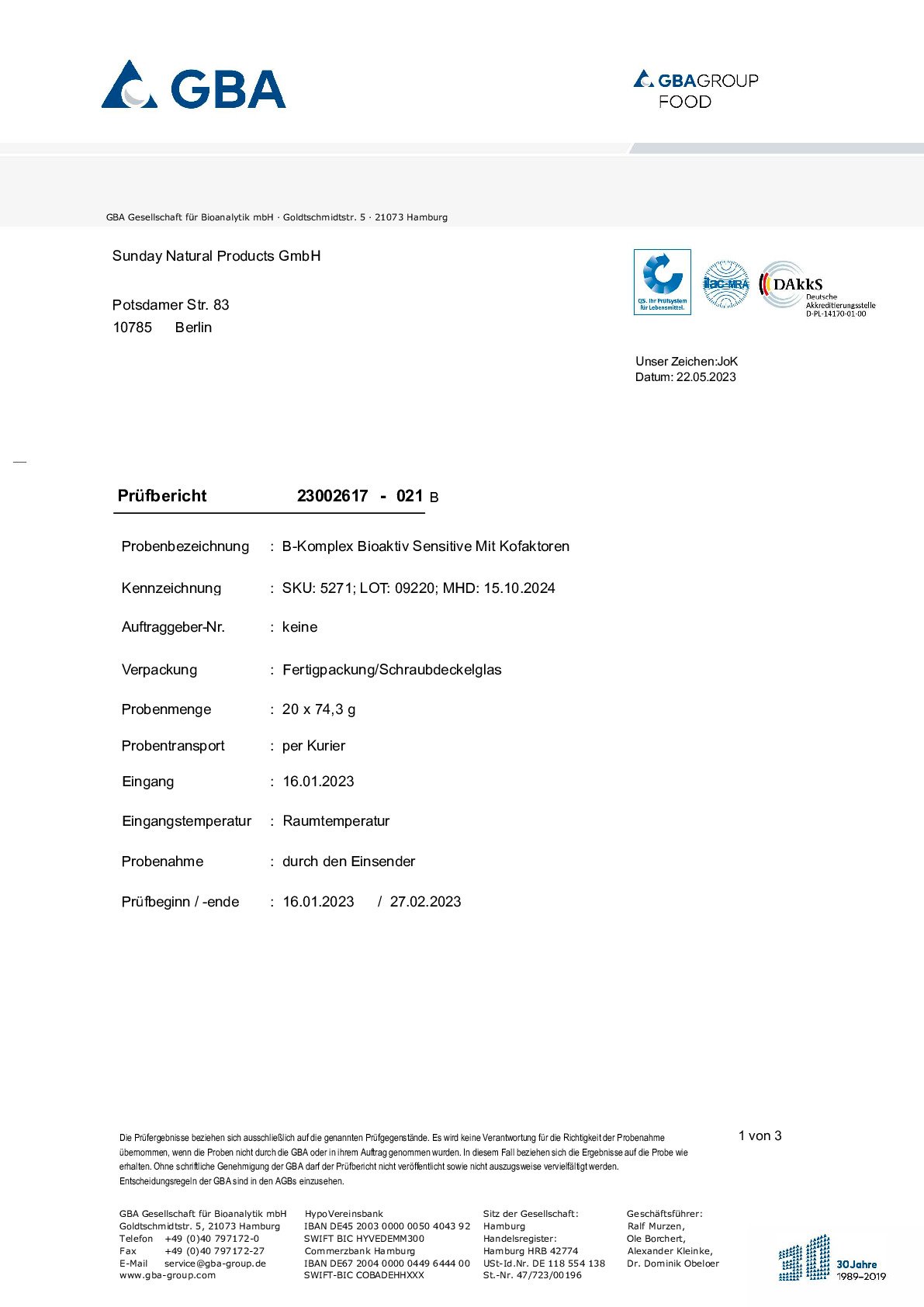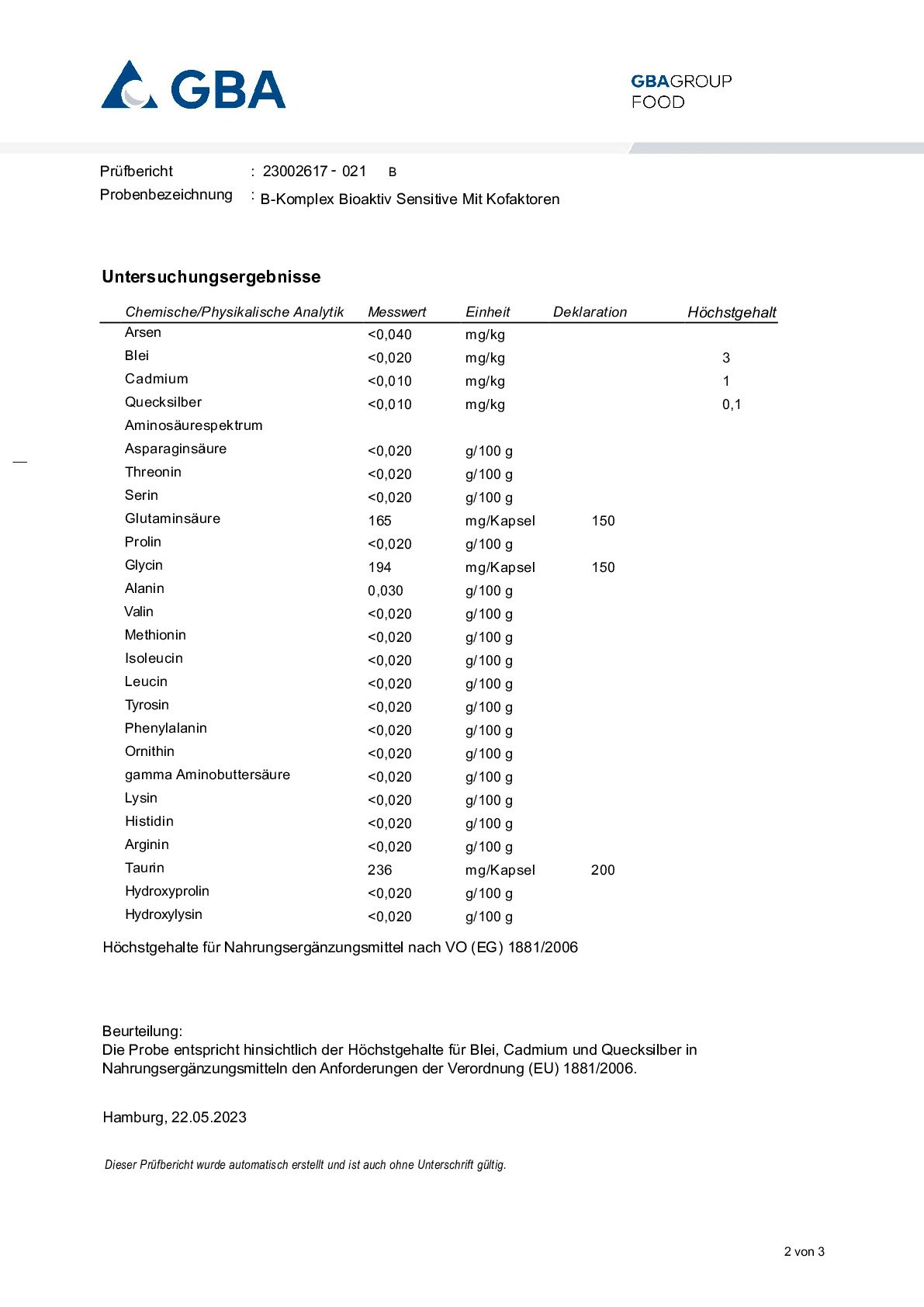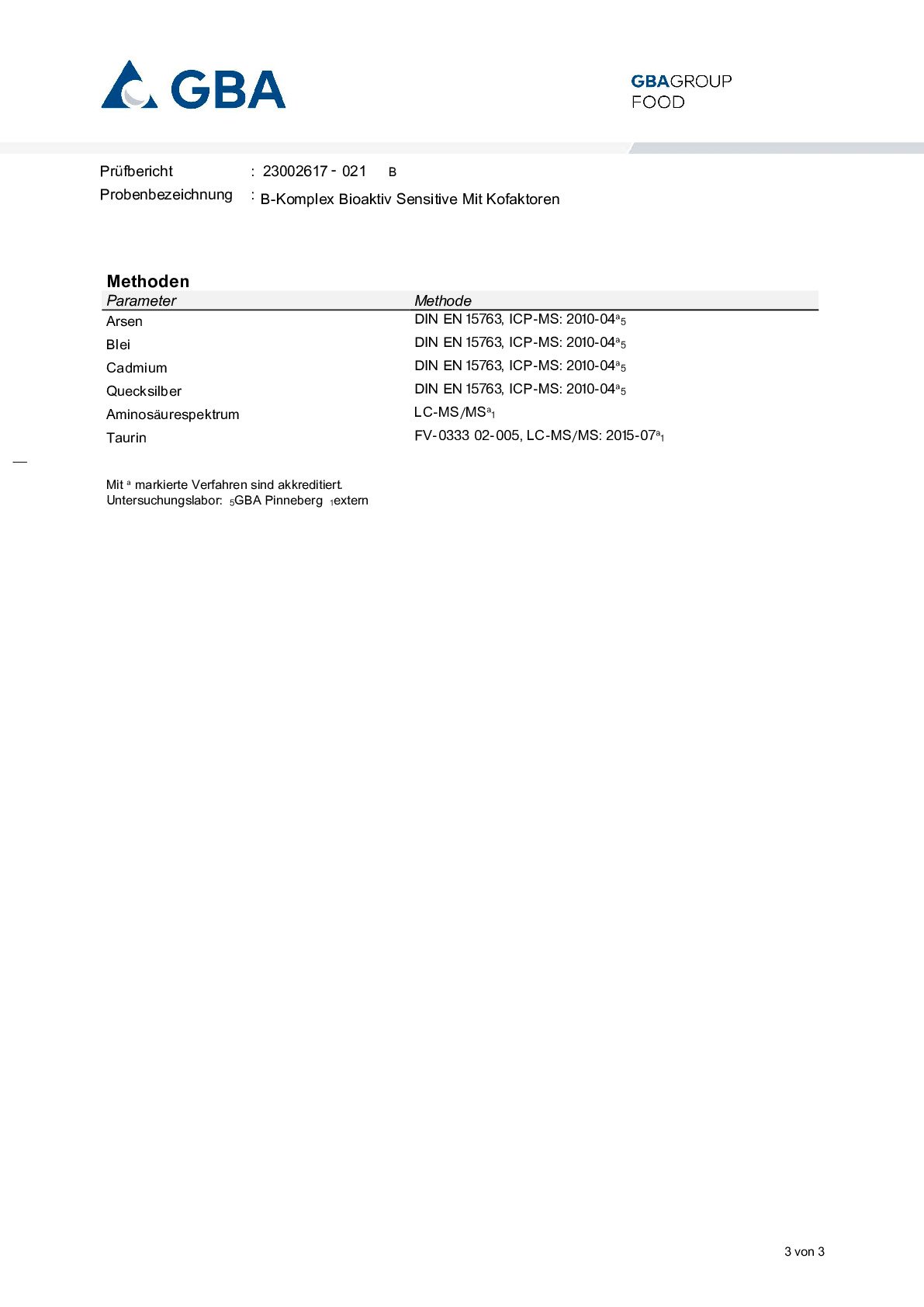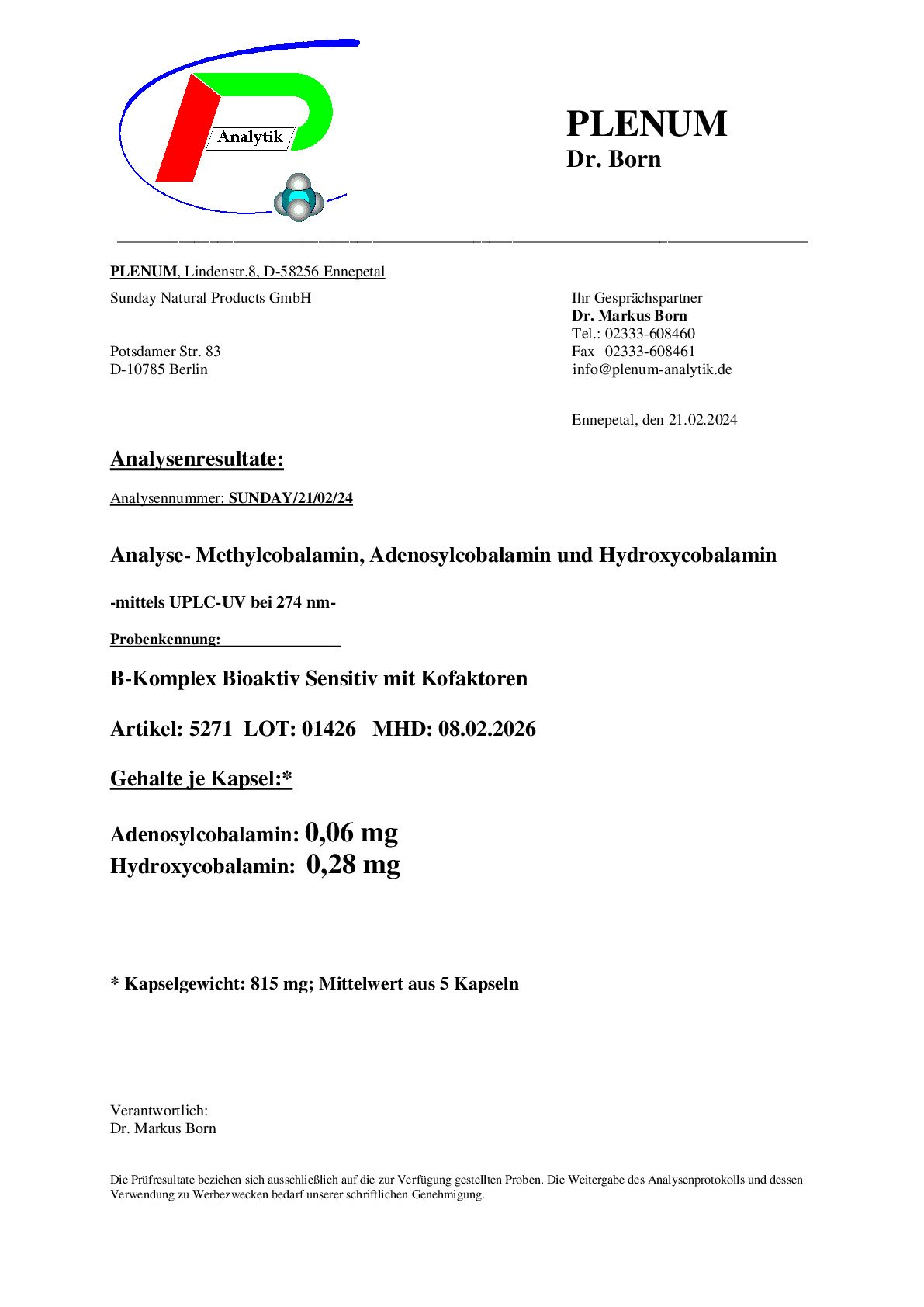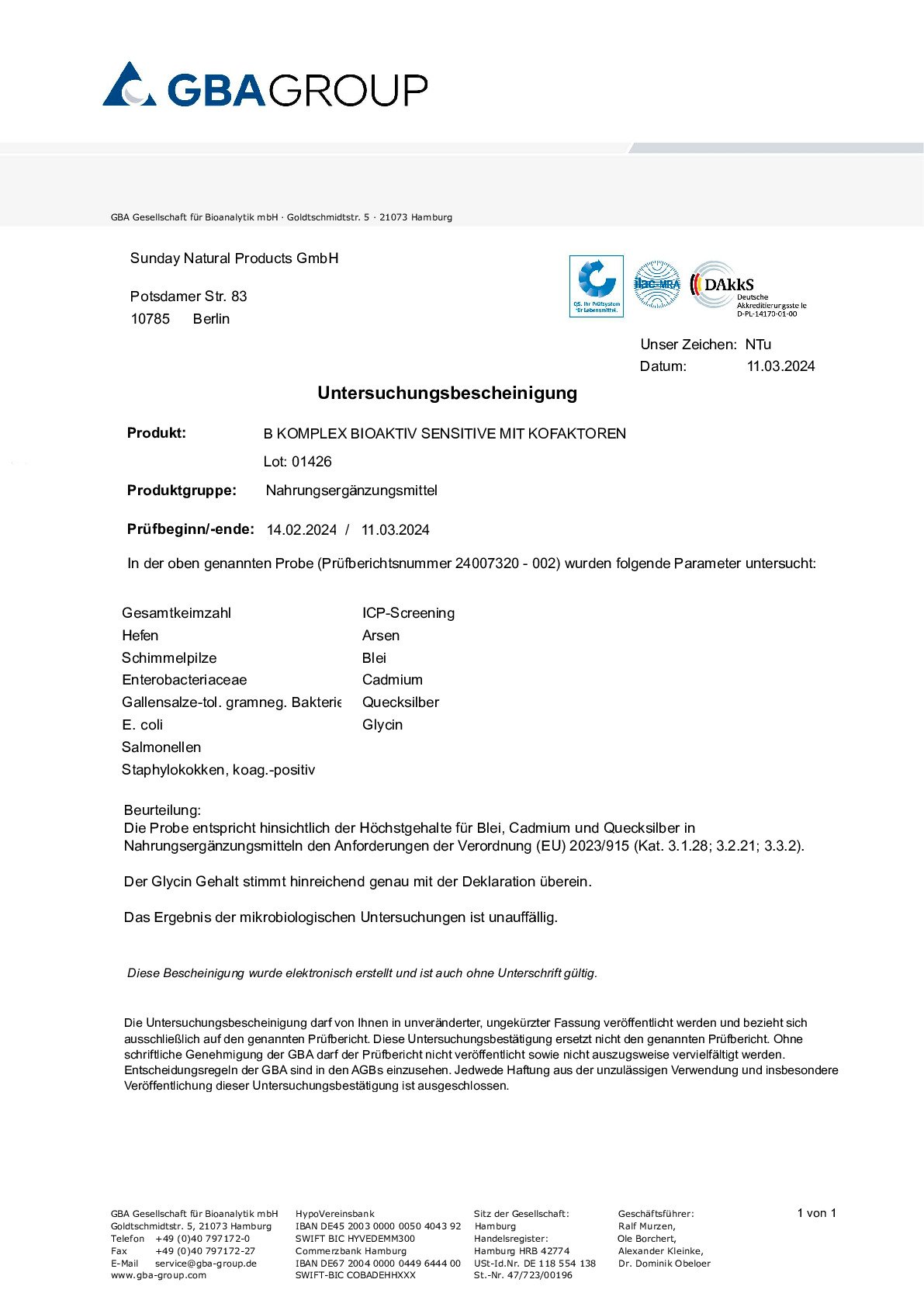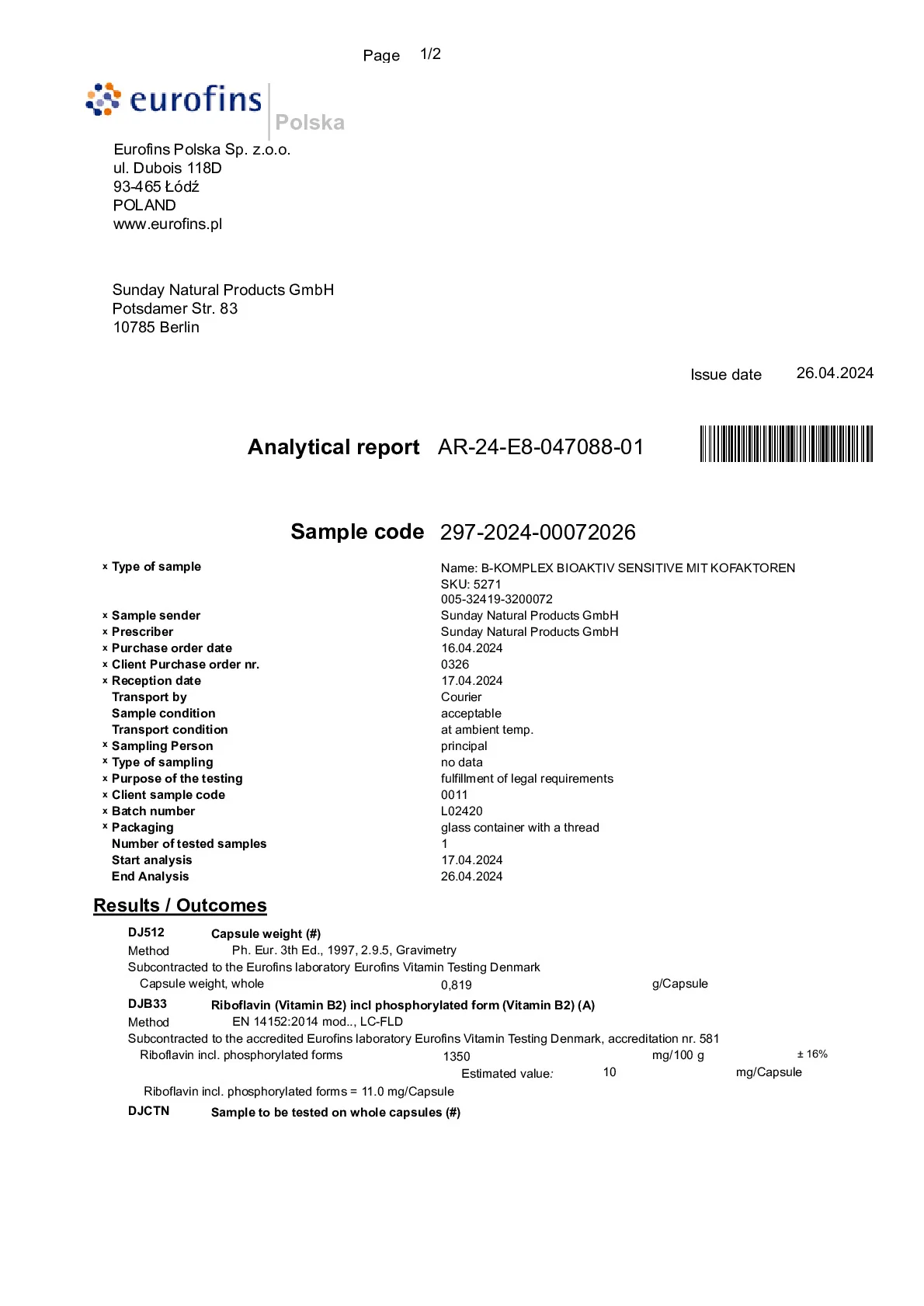B Vitamins
Today, the B vitamins include eight water-soluble vital substances known as vitamins B1, B2, B3, B5, B6, B12, biotin and folic acid. In contrast to other vitamins, the B vitamins cannot be stored in the body over a longer period of time and must therefore be supplied daily through food. The only exception is vitamin B12, which can be stored in the liver.
Some of the B vitamins work very closely together and their effects are interdependent; it is therefore important to ensure an adequate supply of all B vitamins. As the B vitamins are distributed across all food groups, only a very balanced diet provides all B vitamins in sufficient quantities. Consequently, even large nutritional studies repeatedly show significant gaps in the supply of B vitamins.
The Seven B Vitamins in Vitamin B Complex Sensitive
- Thiamin (B1) is involved in energy production and the normal functioning of the nervous system and psyche.
- Riboflavin (B2) plays a role in energy production and reducing fatigue, maintaining healthy skin and mucous membranes, and protecting cells and DNA from oxidative damage.
- Nicotinamide (B3) is involved in the synthesis of serotonin and melatonin from L-tryptophan and is required for the function of the nervous system, psyche, energy, fatigue, skin and mucous membranes.
- Pantothenic acid (B5) plays a role in the energy production of the mitochondria and is required for the synthesis of proteins, cholesterol, steroid hormones and neurotransmitters as well as for the metabolism of vitamins A and D.
- Pyridoxine (B6) is the most important vitamin for amino acid utilization and is involved in the immune system, hormone activity, nervous system, energy metabolism and the formation of red blood cells.
- Biotin (B7) contributes to the maintenance of normal skin, mucous membranes and hair as well as to the normal function of the energy metabolism, nervous system and metabolism of macronutrients.
- Vitamin B12 (cobalamin) is required for the formation of red blood cells and for building DNA and proteins.
Important Cofactors in Vitamin B Complex Sensitive
In addition to the eight essential B vitamins, there are several other nutrients that interact closely with the B vitamins as cofactors and were therefore counted as B vitamins themselves until recently.
- Citicoline (formerly vitamin B4) is mainly found in the form of phosphatidylcholine (lecithin) and acetylcholine.
- Inositol (formerly vitamin B8) is mainly found in the brain, liver and kidneys.
The Amino Acids in Vitamin B Complex Sensitive
In addition to the B vitamins, this complex supplies the three important amino acids taurine, L-glycine and L-glutamine. These amino acids are required for the synthesis of glutatione, a tripeptide and the body's central antioxidant, from cysteine (from taurine), L-glutamine and L-glycine.
Health benefits of B vitamins according to the European Food Safey Authority (EFSA):
B vitamins contribute to:
- Maintaining normal skin and mucous membranes
- Maintaining normal hair
- Maintaining normal cognitive function
- Normal macronutrient metabolism
- Normal energy metabolism
- Normal functioning of the nervous system
- Normal heart function
- Maintaining normal iron metabolism
- Maintaining normal red blood cells
- Protecting DNA, proteins and lipids from oxidative stress
- Cell division
- Maintaining normal cysteine synthesis
- Maintaining normal amino acid synthesis



























